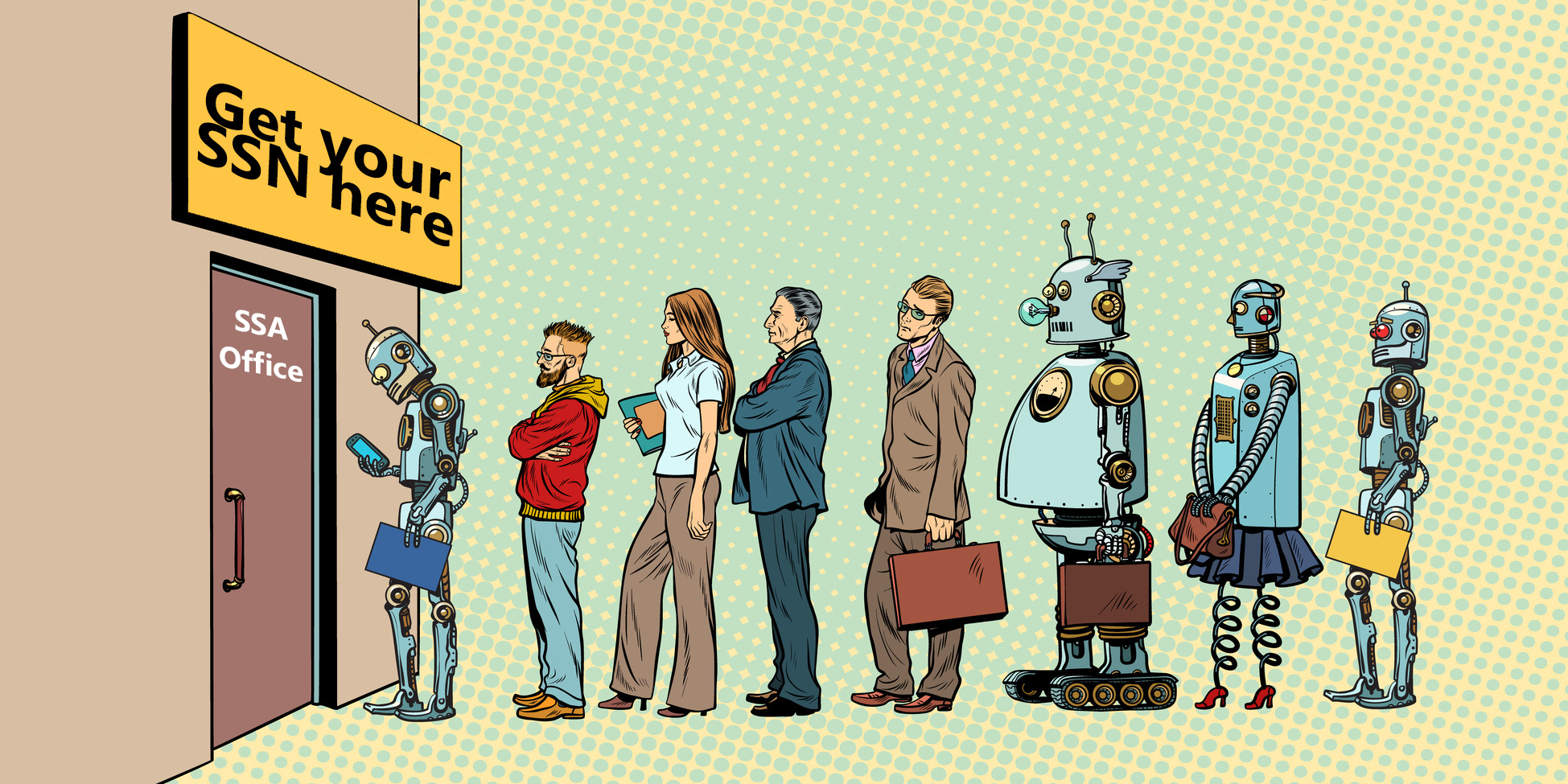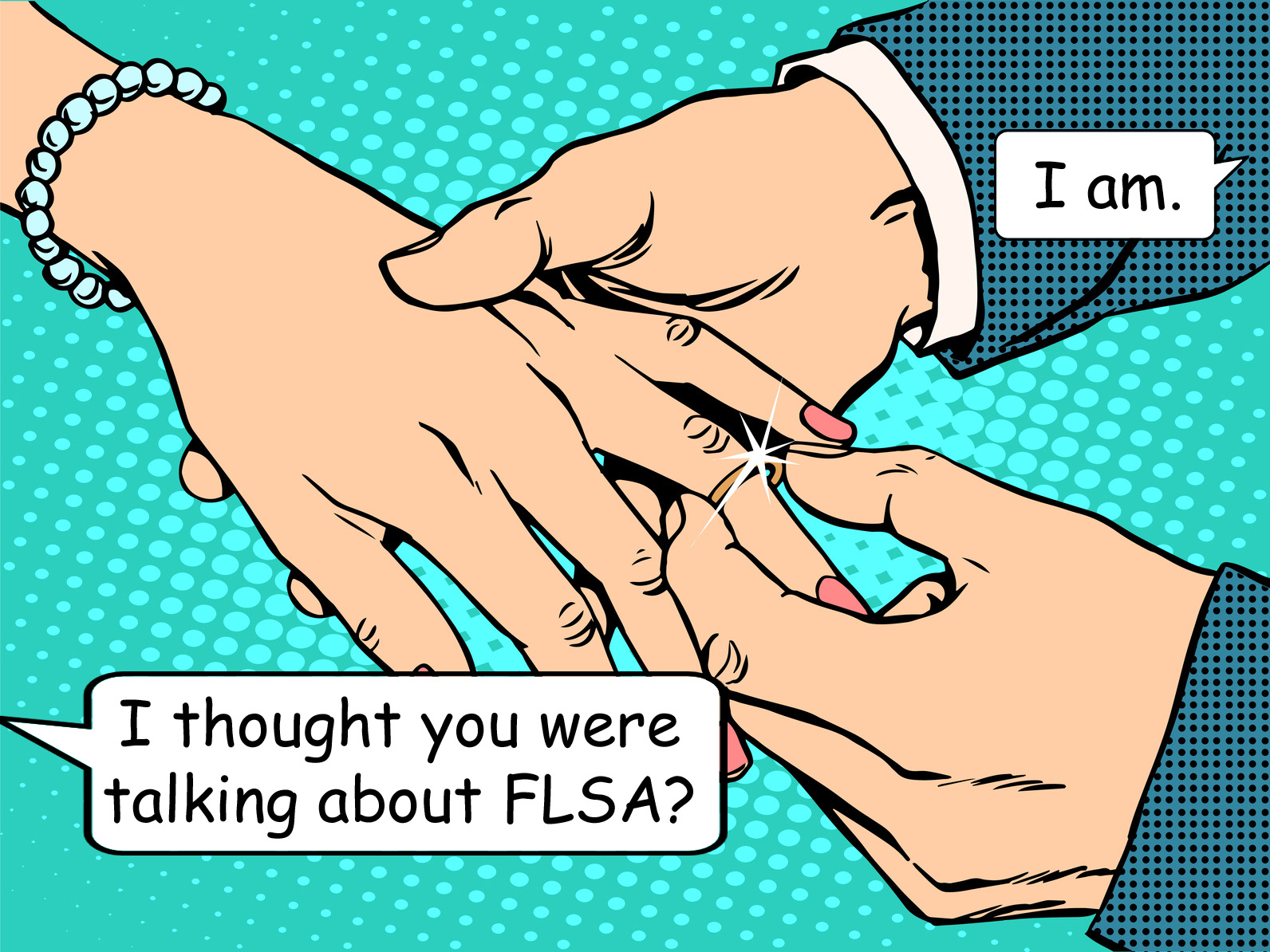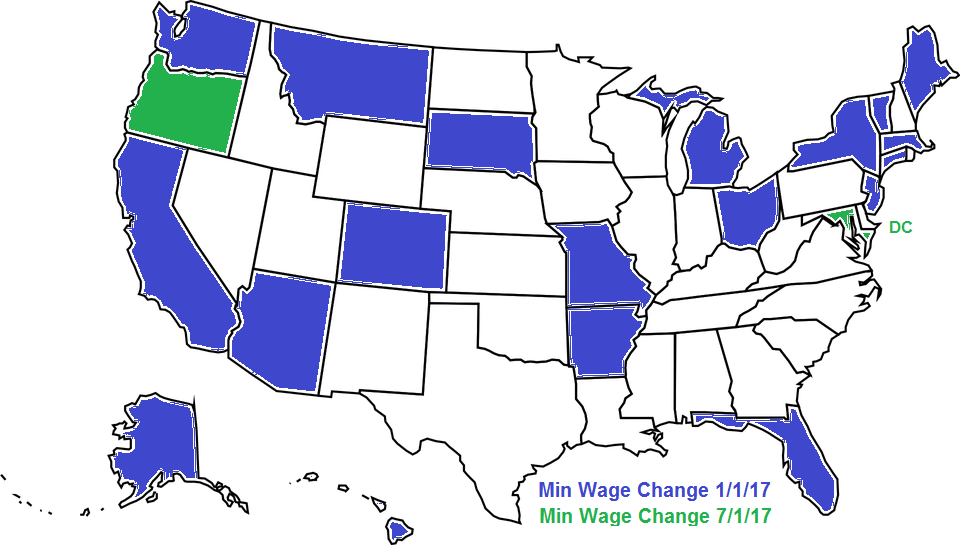The first Social Security Numbers were issued in November 1936, and back then, they were issued through the U.S. Postal Service as the Social Security Administration deemed that was the most efficient way to reach the American workforce. Much like today, individuals completed the SS-5 form to request a number, and they were printed at one of the 1,074 post offices that were designated as a “typing center” before being distributed back to the individuals local post office. Fun fact #1, the first established number 055-09-0001 was issued to John D Sweeney, Jr. He died in 1974 at the age…
Posts published in “Employee Management”
Not knowing the difference could result in a costly Department of Labor claim. Maybe more costly than a divorce. If your employee is Engaged to Wait then that time is considered hours worked. Conversely, Waiting to be Engaged are off-the-clock hours, thus not hours worked or compensable under the Fair Labor Standards Act (FLSA). So what is the difference between the two? I am glad you asked. Engaged to Wait is time spent primarily for the benefit of the employer, and how much restraint is placed on an employee who is waiting. Let’s look at a few examples to…
United States Citizenship and Immigration Services (USCIS) Form I-9 is used for verifying the identity and employment authorization of all individuals (citizens and non-citizens) hired for employment. On July 17th USCIS released a new form and employers have 60 days to implement this new version. First introduced in November 1986, this form is completed by both the newly hired Employee (where they state their eligibility to work -Section 1), and the Employer (where they verify the employee’s eligibility -Section 2) within three days of hire. The list of acceptable documents referenced by the employer to verify the employee’s eligibility…
Compensatory time, aka Comp Time, has been an acceptable practice for government employees, but a recent bill passed by the House on May 2nd moves on to the Senate. Comp time is formally defined as time off that is accrued by an employee in exchange for cash overtime pay, or more precisely as 1.5 hours of Comp time in exchange for 1 hour worked of overtime. While this may be happening in private businesses today, it is currently a violation of the Fair Labor Standards Act (FLSA), and the Working Families Flexibility Act of 2017 (H.R. 1180) is looking…
Happy New Year! With the new year comes 19 states changing their minimum wage effective January 1st, and another three states implementing a change effective July 1st. While the federal minimum wage remains the same at $7.25 per hour, the minimum wage for federal contractors has increased to $10.20 per hour. The following states will have a minimum wage change effective January 1st; (click on the state name for additional information) Alaska 9.80 Arizona 10.00 Arkansas 8.50 California 10.50 Colorado 9.30 Connecticut 10.10 Florida 8.10 Hawaii 9.25 Maine 9.00 10.68 Portland Massachusetts 11.00 Michigan 8.90 Missouri 7.70 Montana 8.15…
A federal Judge on Tuesday blocked the law that was passed on May 17th, 2016 to increase the minimum salary amount a worker can earn and remain exempt from overtime pay. U.S. District Judge Amos Mazzant, of Texas, agreed with 21 states and a coalition of business groups, including the U.S. Chamber of Commerce, that the rule is unlawful and granted their motion for a nationwide injunction. Mazzant stated that the federal law governing overtime does not allow the Labor Department to decide which workers are eligible based on salary levels alone. The rule was to take effect on…
Whether you are in a state that has already legalized the use of marijuana (medical or recreational), or you are just waking up to your state passing the legalization last night, you need to consider its impact on your workplace. How does legalized marijuana use come into play in regards to your Zero Tolerance/Drug Free Workplace policy? Are you required to accommodate the use of medical marijuana during an employee’s shift? Does language in your employee handbook conflict with your state’s laws? These are just a few of the questions a business needs to take into serious consideration. For example, some…
A biometric recognition timeclock is a great way to assure that the employee who is ‘on the clock’ is actually the one on-site and performing work, as it utilizes a part of the person’s body as their verification. In mainstream practice, I find two main types of biometric clocks; hand recognition and fingerprint recognition. In this article, I will discuss a few pros and cons, and how reliable they are in making a positive id. First up is hand recognition. The device is the HandPunch clock which reads the unique geometry of each person’s hand. Contrary to popular belief, it…
By; Rhonda Bunker Director of Sales In the event you aren’t a football fan, the NFL draft just happened. The time of year when coaches and owners are all vying for the same players. You know the ones, the Heisman Trophy winners, the players who could take out a semi truck, the guys who run faster than gazelles. Those are the guys every team wants. The guys who look good on paper, the ones who have gotten the job done in college. It’s probably similar to the strategies you use when picking the right candidates to join your teams. Have…
I guess you can’t say we did not warn you. One day after our posting of the new Overtime Regulation coming, it is signed into law taking effect on December 1st, 2016. On Tuesday, May 17, 2016, the Department of Labor published its long-awaited final rule updating the Fair Labor Standards Act (FLSA) overtime regulations. The most material changes relate to the minimum salary you must pay to exempt employees, which is discussed in more detail below. For full details, be sure you read the previous article “Are You Ready?” The new regulation increases the salary test to $913 per week ($47,476 year),…










